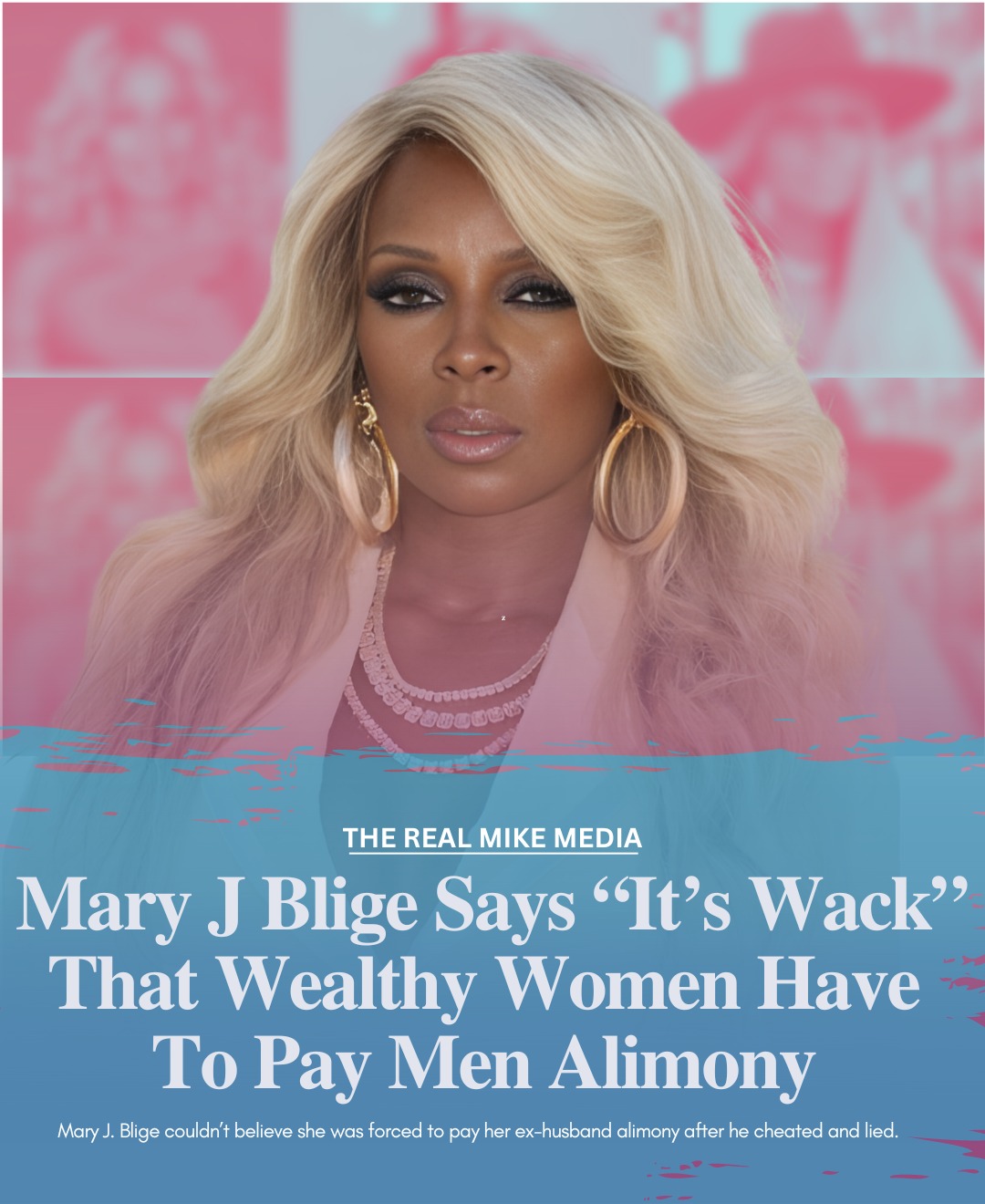Mary J. Blige, the acclaimed singer, songwriter, and actress, has always been a powerful voice in the entertainment industry, not just for her musical talents but also for her strong stance on various social issues. Recently, she has made headlines for her outspoken views on a topic that affects many individuals in the realm of divorce and separation: alimony. Specifically, Blige has expressed her belief that women should not be required to pay alimony, a stance that has sparked significant discussion and debate.
The Context: Mary J. Blige’s Personal Experience
Mary J. Blige’s perspective on alimony is informed by her own personal experiences. The star’s highly publicized divorce from her ex-husband Kendu Isaacs highlighted the complexities and emotional strains involved in divorce settlements. During their legal proceedings, Blige faced significant financial claims from Isaacs, which she argued were disproportionate. This experience has fueled her current stance, advocating for a re-evaluation of alimony laws, especially concerning women.
The Argument for Fairness
Blige’s argument is rooted in the belief that alimony should reflect a fair and equitable assessment of both parties’ contributions and needs. She asserts that, in today’s world, many women are successful and financially independent, and thus, should not be obligated to support an ex-partner if they are capable of supporting themselves. Her stance suggests that alimony should not be an automatic entitlement but rather a carefully considered decision based on individual circumstances.
Societal Shifts and Alimony Laws
The debate over alimony is not new, but it has gained renewed attention as societal roles and expectations evolve. Traditionally, alimony was designed to support a lower-earning spouse, often a woman, who might have sacrificed career opportunities for the benefit of the marriage. However, with increasing gender equality in the workforce, many argue that such provisions should be revisited.
Critics of the current alimony system, including Blige, argue that it can sometimes perpetuate outdated gender roles. They point out that in modern relationships, both partners may have contributed financially and personally, making it unfair for one partner to be financially burdened post-divorce. Blige’s viewpoint reflects a growing sentiment that alimony should be reformed to better align with contemporary norms and realities.
Impact and Implications
Blige’s public stance has the potential to influence discussions on alimony reform. By leveraging her platform and personal experience, she adds a high-profile voice to the debate, potentially encouraging policymakers to reconsider how alimony is determined. Her advocacy could lead to greater scrutiny of existing laws and practices, promoting a more nuanced approach that considers the changing dynamics of modern relationships.
Conclusion
Mary J. Blige’s declaration that women should not be required to pay alimony is a provocative stance that challenges traditional norms. As societal roles continue to evolve, her perspective adds valuable insight into the broader conversation about fairness and equity in divorce settlements. Whether or not this viewpoint will lead to legal reforms remains to be seen, but Blige’s involvement certainly underscores the need for ongoing dialogue and evaluation of alimony practices in the 21st century.

